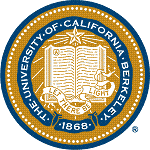« ORESTE » is an Associate Team between INRIA project-team ACUMES (formerly OPALE) and the Berkeley University team Connected Corridors (formerly Mobile Millennium), funded from 2012 to 2014, renewed from 2015 to 2017.
Research activity in 2017
Research Report for 2017
Exchanges between partners in 2017
During the sixth year of the project we had the following research visit exchanges:
- Thibault Liard, Post-Doc at Rutgers University - Camden, visited Inria in two weeks in September, 2017.
- N. Laurent-Brouty, PhD Student at Inria, visited UC Berkeley 1 month in May, 2017.
- Alexander Keimer, Post-Doc at UC Berkeley, visited Inria 3 weeks in October, 2017.
Advances of the work program
During this sixth year, we focused mainly on the following topics:
- Construction of a general Riemann Solver at junctions
- We introduced a new Riemann solver for traffic flow on networks. The Priority Riemann solver (PRS) provides a solution at junctions by taking into consideration priorities for the incoming roads and maximization of through flux. We prove existence of solutions of the Cauchy problem for junctions with up to two incoming and two outgoing roads and show numerically the comparison with previous Riemann solvers. Additionally, we introduce a second version of the solver that considers the priorities as softer constraints and illustrate numerically the differences between the two solvers.
- Development of Dynamic Traffic Assignment (DTA) models
- We investigated literature on DTA, focusing mainly on the single commodity model, in order to understand the foundations of more elaborated models. In particular, Bressan’s work enables us to develop models on networks for traffic flow. We formulated an optimal routing problem, and gave optimality conditions for a proposed cost function subject to the dynamics on the network.
- We are currently developing a new model solving conservation laws on networks including the coupled boundary conditions at the junctions. To that end we introduce a limited buffer and prove with the corresponding Hamilton-Jacobi equations the well-posedness of the model. One of the key properties of the presented model is its capability of showing spillback phenomena over junctions. At the junctions, we introduce a time-dependent routing, which allows to route incoming flow on the exiting links time-dependently.
- Stability results for models including autonomous vehicles trajectories in view of applications to traffic flow optimization
- We proved a well-posedness result for scalar conservation laws with moving flux constraints, in which the moving bottleneck is not affected by the surrounding traffic conditions. In particular, we show the Lipschitz continuous dependence of BV solutions with respect to the initial data and the constraint trajectory.
- We are currently studying the time-dependent moving bottleneck problem. More precisely, we consider a moving bottleneck (e.g. a controlled autonomous vehicle) whose desired speed can vary in time. This allows formulating and solving optimal control problems for traffic regulation based on the deployment of CAVs.
Joint papers resulting from the collaboration
During this year we revised the paper
-
M.L. Delle Monache, P. Goatin and B. Piccoli,
Priority-based Riemann solver for
traffic flow on networks, submitted.
the papers
-
S. Samaranayake, J. Reilly, W. Krichene, M.L. Delle Monache, P. Goatin and A. Bayen, Discrete-time system optimal dynamic traffic assignment (SO-DTA) with partial control for horizontal queuing networks, Transportation Science.
-
A. Keimer, N. Laurent-Brouty, F. Farokhi, H. Signargout, V. Cvetkovic, A. Bayen, K. H. Johansson, Integration of information patterns in the modeling and design of mobility management services,Proceedings of the IEEE.
-
M.L. Delle Monache, P. Goatin,
Stability estimates for scalar conservation laws with moving flux constraints, Netw. Heterog. Media, 12(2) (2017), 245-258.
Future work
The activities launched in the framework this Associated Team will certainly continue under several different programs, following the evolution of partners’ interests and hosting institutions. At the moment, a post-doc position funded by Inria@SiliconValley has be granted to Dr. Shuxia Tang starting from January 1st, 2018, to work on “Smart cities: real-time decision making in traffic management” under the joint supervision of P. Goatin (Inria, ACUMES) and A. Bayen (UC Berkeley). We are looking for further funding opportunities to carry on other on-going collaborative activities.




 Menu
Menu See also
See also Contact
Contact